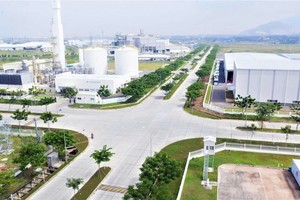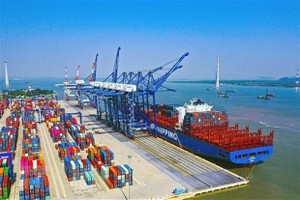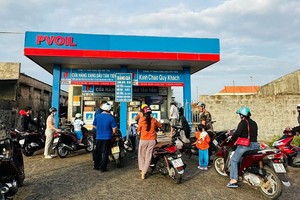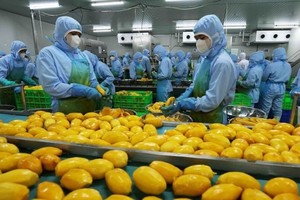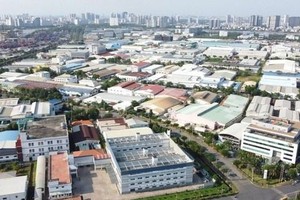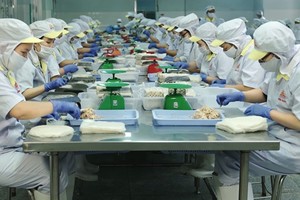 Illustrative photo
Illustrative photo
Worse, market purchasing power is decreasing.
Mr. Do Ngoc Hung, Trade Counselor of Vietnam in the US, said that the US is currently the second largest trading partner and the largest export market of Vietnam while Vietnam is the fifth largest trading partner of the US and the sixth partner in terms of total export turnover to the US, accounting for about 4 percent of the total US imports from partners. However, it is from the strong growth of Vietnam's export turnover to this country in recent times that many of Vietnam's exports have been put under monitor and control.
Specifically, according to statistics of the General Department of Vietnam Customs, from the beginning of the year until now, two-way trade turnover between Vietnam and the United States reached about US$96.2 billion, up 20 percent compared to the same period in 2021 and accounted for 17.2 percent of the total import-export turnover of Vietnam with other countries.
Export turnover reached $85.1 billion up 23.7 percent, leading to a large trade surplus of $74 billion, ranking third after China and Mexico. Therefore, the US Government will increase the application of many measures to control inflation and for the protection of domestic production through trade remedies. At the same time, the US Government will put pressure on opening export markets in order to reduce the trade balance deficit between the two countries.
According to Mr. Do Ngoc Hung, the average trade growth of 20 percent per year leads to a number of items that may become the subject of investigation and application of trade remedies such as honey, hardwood plywood, wooden cabinets, steel pipes, textiles, and shoes.
On the other hand, Vietnam’s trade representative in Europe said that the export turnover of the Southeast Asian country's goods in the European market is at risk of decline not only because of the rising inflation factor, but also the decrease in consumption power in the market and the green economy and trade trends.
According to Mr. Vu Duc Giang, Chairman of the Vietnam Textile and Apparel Association, to maintain stable exports of textiles and garments to the European market, enterprises must ensure environmental safety, minimize emissions of waste and meet the energy-saving targets. Moreover, businesses must aim to use environmentally friendly fabrics that can be recycled after use. Currently, the association's member businesses are making efforts to rapidly transform production activities towards the greening textile industry.
Dr. Can Van Luc, Chief Economist of BIDV, said that businesses are necessary to drastically restructure, diversify capital sources, and pay more attention to risk management, especially risks of finance (or cash flow ), interest rates, and exchange rates because reducing financial leverage also reduces costs for businesses at this time. In the context of a sharp increase in bank interest rates, the state needs to effectively implement tax support policies for businesses.
On the other hand, according to economic experts, related ministries and agencies play a significant role in assisting businesses to overcome difficulties at this time.
Dang Van Tuan, acting director of the Department of Industry and Trade of the Mekong Delta Province of Tien Giang, suggested that the Ministry of Agriculture and Rural Development should continue to advocate and work with the governments of exporting countries to expand more markets for Vietnamese agricultural exports.
At the same time, he petitioned to promote the attraction of investment in irradiation technology on fruits in order to improve post-harvest preservation technology for export to fastidious markets. Next, he suggested that the authorities continued to study the market statistics and capture the market well, political and policy changes in export markets; thereby, responsible agencies can give warnings promptly to help enterprises to switch production to adapt to the market development.
For businesses, it is necessary to actively improve competitiveness, improve technology, improve labor productivity, and actively participate in regional and global production and supply chains. An important factor is to fully enforce the regulations of the competent authorities of the exporting countries, to avoid violations of regulations on investment, labor, environment, and origin of goods. In addition, firms promote export products that Vietnam can replace in the context of a shortage of supply from the global supply chain such as agricultural products, consumer goods, iron and steel.



